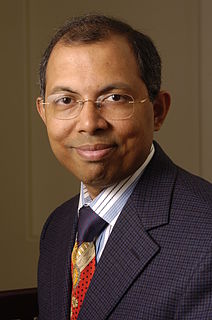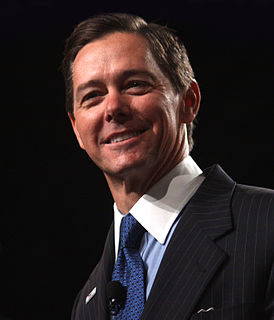A Quote by John Rawls
There are two kinds of comprehensive doctrines, religious and secular. Those of religious faith will say I give a veiled argument for secularism, and the latter will say I give a veiled argument for religion. I deny both. Each side presumes the basic ideas of constitutional democracy, so my suggestion is that we can make our political arguments in terms of public reason. Then we stand on common ground. That's how we can understand each other and cooperate.
Quote Topics
Argument
Basic
Both
Common
Common Ground
Comprehensive
Constitutional
Cooperate
Democracy
Deny
Each
Faith
Give
Ground
How
Ideas
Kinds
Latter
Make
Other
Our
Political
Political Arguments
Public
Reason
Religion
Religious
Religious Faith
Say
Secular
Secularism
Side
Stand
Suggestion
Terms
Then
Those
Two
Understand
Will
Related Quotes
Any comprehensive doctrine, religious or secular, can be introduced into any political argument at any time, but I argue that people who do this should also present what they believe are public reasons for their argument. So their opinion is no longer just that of one particular party, but an opinion that all members of a society might reasonably agree to, not necessarily that they would agree to. What's important is that people give the kinds of reasons that can be understood and appraised apart from their particular comprehensive doctrines.
If you and I are not having a dialogue, when you're having an argument, the reason the argument happen is because we are not listening to each other. Then, the argument comes in, but if we truly listen instead of hearing, argument will not happen. Then, we'll empathize, and then once the empathy kicks in, you will be much more inclining with my viewpoint and I'll be inclining with your viewpoint, and that's what is missing in organizations.
I believe not only that religious faith will be victorious, but that it is vital to humankind that it shall be. We may differ in form and particulars in our religious faith. Those are matters that are sacred to each of our inner sanctuaries. It is our privilege to decline to argue them. Their real demonstration is the lives that we live.
To straddle the middle ground and win elections, we have to be in charge of the political agenda. This can only be done by not being beaten in the argument with our critics. They complain that I come down too hard on their arguments. But wrong ideas have to be challenged before they influence public opinion and make for problems. Those who try to be clever at the expense of the government should not complain if my replies are as sharp as their criticisms.
In contemporary society secular humanism has been singled out by critics and proponents alike as a position sharply distinguishable from any religious formulation. Religious fundamentalists in the United States have waged a campaign against secular humanism, claiming that it is a rival "religion" and seeking to root it out from American public life. Secular humanism is avowedly non-religious. It is a eupraxsophy (good practical wisdom), which draws its basic principles and ethical values from science, ethics, and philosophy.
Muhammad professed to derive from Heaven, and he has inserted in the Koran, not only a body of religious doctrines, but political maxims, civil and criminal laws, and theories of science. The gospel, on the contrary, only speaks of the general relations of men to God and to each other - beyond which it inculcates and imposes no point of faith. This alone, besides a thousand other reasons, would suffice to prove that the former of these religions will never long predominate in a cultivated and democratic age, whilst the latter is destined to retain its sway at these as at all other periods.
Democracy demands that the religiously motivated translate their concerns in to universal, rather than religion-specific, values... it requires that their proposals be subject to argument and amenable to reason. Now I may be opposed to abortion for religious reasons, to take one example, but if I seek to pass a law banning the practice, I cannot simply point to the teachings of my church or evoke God's will. I have to explain why abortion violates some principle that is accessible to people of all faiths, including those with no faith at all.
The compelling argument is on the side of homosexuals. We're Americans. We just want to be treated like everybody else. That is a compelling argument. And to deny that, you've got to have a very strong argument on the other side. And the other side hasn't been able to do anything but thump the Bible ... I support civil unions, I always have. All right, the gay marriage thing, I don't feel that strongly about it one way or the other.
The humble, simple souls, who are little enough to see the bigness of God in the littleness of a Babe, are therefore the only ones who will ever understand the reason of His visitation. He came to this poor earth of ours to carry on an exchange; to say to us, as only the Good God could say: 'you give me your humanity, and I will give you my Divinity; you give me your time, and I will give you My eternity; you give me your broken heart, and I will give you Love; you give me your nothingness, and I will give you My all.
Ultimately, the current argument is "not having net neutrality will hurt innovation," and you can make that argument, but I would rather make the public good argument, which is not just about innovation or nurturing new companies that will add to the nation's GDP, it's actually about creating a democratic public sphere.
With each passing year, people of faith grow increasingly distressed by the hostility of public institutions toward religious expression. We have witnessed the steady erosion of the time-honored rights of religious Americans - both as individuals and as communities - to practice what they believe in the public square.



































